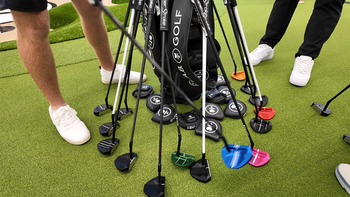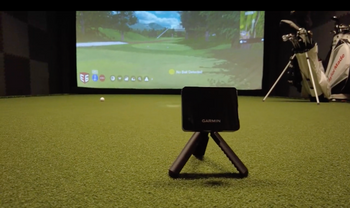Golf carts tip the scales anywhere from 500 to 1,200 pounds, and knowing this matters when you're hauling one around. Your typical electric cart starts at about 500-600 pounds, while gas models usually weigh 800-1,200 pounds. Big workhorses like Club Car's Transporter can push 1,646 pounds! Here's what matters: your trailer needs to handle your cart's weight plus accessories with at least 15% extra capacity. Gas carts give you better towing stability thanks to their heavier build, and getting these weight differences straight helps you pick the right hauling setup.
Table of Contents
Breaking Down Cart Weights by Brand and Type
Shopping for a cart? Weight's actually one of the most significant numbers you'll deal with! Golf carts differ wildly in how much they weigh based on what you're buying. Standard carts run between 500 and 1,100 pounds, but those lifted beasts can reach 1,895 pounds.
Each manufacturer does things differently. Yamaha's UMAX lineup goes from 945 pounds (UMAX Two AC) up to 1,320 pounds (UMAX Rally 2+2 EFI). Evolution carts start at 1,058 pounds (D5 Ranger 4) and climb to 1,395 pounds (D5 Maverick 6). Club Car's got a huge spread from 651 pounds for their Precedent i2 Gasoline with E.F.I. all the way to 1,646 pounds for those big Transporter rigs. ECO carts stick around 1,200 pounds mostly, though their Track 4+2 hits about 1,506 pounds—that's three times what a basic cart weighs!
Don't forget those batteries add serious pounds too, usually 55-80 extra depending on voltage setup.

Electric Against Gas Cart Weight Comparison
Your choice between electric and gas power changes your cart's weight more than you'd think! Electric carts generally weigh 600-1,000 pounds, and some compact ones barely reach 500 pounds. Their motors weigh less than gas engines, but batteries pile on 10-300 pounds based on which kind you get.
Gas carts bring more heft, typically 800-1,200 pounds. That engine weighs more than electric motors, and you've got fuel plus beefier parts adding bulk. But hey, that extra weight helps you out when towing! Those heavier gas carts stay more stable and pull bigger loads, while lighter electric ones can't haul as much but turn easier. Gas carts usually pack 10-12 horsepower too, beating electric models for pulling power.
Always look up your cart maker's exact specs to know the real weight before you start towing anything.
Each Brand's Weight Numbers and Differences
Past the power source debate, every cart maker takes their own shot at balancing weight and design. Club Car stays lighter, mostly 650-1,200 pounds their Onward gas cart's only 675 pounds. E-Z-GO sits in between at 700-1,250 pounds, but Yamaha spans the biggest range from 606-1,348 pounds. Yamaha's QuieTech EFI stays slim at 750 pounds, though their Drive2 AC climbs to 973 pounds when it's electric.
STAR carts come heavier, bottoming out at 1,255 pounds for their Sirius 2. Cushman builds tough, weighing 980-1,500 pounds. GARIA stays reasonable at 800-1,100 pounds. Battery type changes things big time, too. Lead Acid setups hit 1,269 pounds while Lithium drops that to 995 pounds. Knowing these weights helps you figure out what your trailer needs to handle!
What Makes Cart Weights Different
Figuring out why one cart outweighs another isn't complicated, but several things control that final number. Battery selection is the biggest factor; those energy packs weigh 300-500 pounds! Lithium-ion saves weight compared to lead-acid, so there's your primary savings. Frame stuff counts too; steel's stronger but heavier than aluminum frames. Cart size matters for obvious reasons; six-seaters outweigh two-seaters thanks to extra seats and support pieces. Gas carts beat electric ones weight-wise because of engines and fuel systems. Most carts land between 900-1,100 pounds before you start adding stuff. Remember, every cool upgrade, fancy wheels, speakers, baskets add pounds that change your towing math. Going over limits hurts performance and handling, so know your cart's specs before you tow.
How Upgrades and Add-Ons Change Total Weight
Once you start decking out your cart with cool accessories, you're basically creating a heavyweight without noticing! That roof-windshield package? It's adding real pounds for comfort. Lift kits enhance your off-road skills but stack on weight. Those huge 23-inch knobby tires look sick but seriously increase your cart's bulk versus stock wheels.
Storage boxes and bins seem innocent until you add up their weight. Even simple cargo nets count toward your total. What really matters is how these mods stress your cart's parts, possibly shortening its life. You've gotta watch those manufacturer limits, overloading creates safety problems for everyone around when you're towing. Bad weight balance from mods makes your cart tippy and dangerous. Check your manual for exact capacity numbers before bolting on upgrades to stay safe.

Matching Towing Abilities to Cart Weights
Your cart's weight tells you exactly how much it can pull safely, and this connection catches lots of new owners off guard. Here's how it works: lighter 800-pound electric carts usually top out pulling 300-400 pounds, but heavier 1,100-pound gas rigs handle 800-1,000 pounds no problem.
Picture this: your cart needs enough weight to stay grounded, pulling trailers uphill. An electric 900-pounder might fight with a 500-pound boat trailer, but a 1,050-pound gas cart pulls it fine. Frame and suspension count too, but weight's your starting point. Check what your manufacturer says, because going over limits wrecks your cart and gets dangerous fast!
Must-Have Gear for Moving Your Cart Safely
Getting your cart from A to B safely takes more than just hitching up and driving off You need proper gear to avoid damage, wrecks, and pricey fixes. Flatbed trailers give you the steadiest base for hauling, beating out other options that wobble. Go with soft straps over chains they hold your cart tight without scratching up the paint. Winches save your back from loading, especially with 1,400-pound monsters! Add visibility flags or bright signs so other drivers see you coming. Your tow rig needs to match your cart's weight needs, so double-check those numbers before rolling out.
Balancing Weight Right During Transport
Getting the weight distributed right turns cart hauling from scary to smooth sailing. Put your cart toward the front of your trailer, keeping most weight near the axle for better control. You want tongue weight at 10-15% of what your trailer's carrying total. Too light makes dangerous sway, too heavy beats up your vehicle's rear.
Strap your cart down low on the trailer to drop that center of gravity huge stability enhancement! Tie down all four corners tightly so nothing moves while driving. Spread any extra stuff evenly on the trailer, and keep proper air in all tires. These easy steps turn risky hauling into confident cruising.

Picking Trailers That Match Your Cart's Weight
Finding the right trailer means matching what it can carry to what your cart weighs that's your starting point for safe hauling. You'll need different trailer strength based on brand and power source.
Electric carts weighing 500-1,000 pounds need lighter-duty trailers than gas rigs hitting 800-1,100 pounds. Club Car folks need trailers good for 650-1,200 pounds, but Cushman owners need stronger ones handling 980-1,500 pounds! Your trailer should carry more than your cart plus accessories weigh remember that sweet sound system or cooler you installed.
Pick open trailers for basic hauling or enclosed ones to beat bad weather. Remember: your tow vehicle needs to handle trailer and cart weight together for safe trips.
Following Rules and Legal Limits When Towing
After picking your trailer, you need to know the legal stuff about towing with golf carts. Here's what matters: there are no federal rules for cart towing, so it's all local and state laws.
Golf carts usually tow 300-1,000 pounds legally, with gas models pulling more than electric. Check what your manufacturer says first, then look up local rules. Some towns ban cart towing on streets completely!
Keep within your cart's rated pulling power; going over isn't just risky, it gets you in legal hot water. Research your area's rules for permits, licenses, and weight limits before towing to stay legal.
Frequently Asked Questions
Can My SUV or Truck Pull a Golf Cart?
Absolutely! SUVs and trucks usually tow 3,500-11,000 pounds, easily handling an 800-1,100 pound cart. You need the right trailer and hitch combo. Look up your vehicle's exact towing numbers in the manual, strap down the cart properly, and you're set!
What If I Pull More Than My Vehicle Can Handle?
Going over towing capacity damages transmissions, overheats engines, and wears out brakes. You'll feel sluggish speed, sketchy handling, and longer stopping. Hills become struggles, and you might void warranties. Since carts weigh 800-1,100 pounds, check your manual first. Overloading causes dangerous situations and costly fixes!
Do I Need Extra Insurance for Cart Towing?
You probably need additional coverage based on what you have now. Auto insurance might handle liability, but you'll want collision and thorough for the cart during hauling. Get trailer coverage if you're using one! Ask about roadside help too, since stuff breaks. Better safe than stuck with coverage holes.
How Does Weather Change Safe Towing Speeds?
Bad weather really affects towing! Rain or wind means slowing from typical 5-8 mph down to 3-5 mph. Wet pavement cuts traction, making quick stops risky. Wind makes carts sway, so ease up and check straps often. Snow and ice? Skip towing completely—too dangerous for proper control.
Can Electric Cart Batteries Move Around and Break Stuff?
You bet! Lead-acid batteries weighing 50-80 pounds can crack frames or mess up electrical systems if they're loose. Use straps, special holders, and padding to lock them down. Even 25-40 pound lithium batteries need securing to avoid expensive problems.
Wrapping Up
Now you know everything for safe cart towing! Most weigh 500-1,200 pounds, so get a trailer good for 1,500+ pounds minimum. Don't skip counting accessory weight; it stacks up quick. Know your local towing rules, tie everything down right, and you're good to roll safely!





